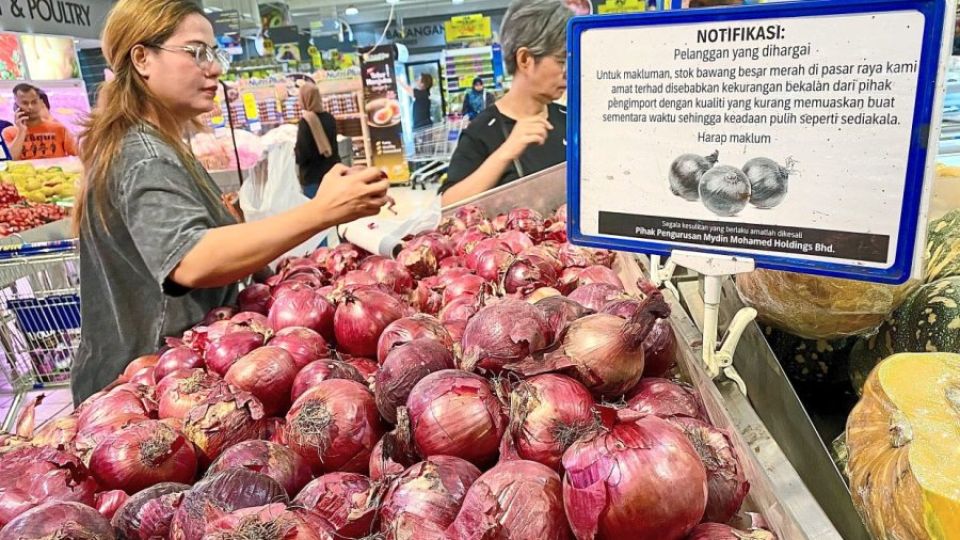March 27, 2024
PETALING JAYA – The teary issue of onions is set to persist as prices are expected to rise due to supply concerns.
With the main supply currently coming from China and Pakistan, the government is seeking a remedy with an order of 100,000 tonnes from India ahead of the Hari Raya celebrations, said Agriculture and Food Security Minister Datuk Seri Mohamad Sabu.
“Discussions are still ongoing and I expect this issue to be settled by May,” he added.
On Dec 8, the Indian government prohibited the export of onions till March 31 this year, but the ban has been extended indefinitely due to a looming general election there.
In the meantime, Mohamad said the government was taking contingency measures by looking at other countries such as South Korea, Taiwan and Japan for onions.
“The demand for onions is very high during Ramadan and Hari Raya as many dishes need this ingredient. Most Malaysian dishes require big red onions and the use of onions in Malay dishes comes from Indian influence. Thus, the demand for Indian onions,” he said.
Ministry secretary-general Datuk Lokman Hakim Ali said in 2023, Malaysia imported about 526,000 tonnes (worth RM945mil) of onions from Japan and South Korea, with the bulk of it coming from Japan.
The ministry said the government had also implemented shallot-planting through the Malaysian Agricultural Research and Development Institute (Mardi), Agriculture Department and the Farmers’ Organisation Authority (LPP), with Mardi being the seed supplier.
Domestic Trade and Cost of Living Minister Datuk Armizan Mohd Ali said onions were among 186 items monitored daily by the ministry’s enforcement unit.
“Although imported onions are not a controlled food item, we monitor the price daily to ensure that there is no profiteering as they are a food ingredient needed by the masses.
“As the supply of onions comes under the purview of the Agriculture and Food Security Ministry, we liaise with them to ensure there is constant communication. Our role is to monitor prices and supplies to make sure that consumers do not suffer from exorbitant prices when there is low supply.
“Consumers can check the prices of onions on our ministry’s app Price Catcher,” said Armizan.
Although the app showed that Indian onions were still available in some places, prices varied widely with the lowest at RM5.99 per kg, going up to RM20 per kg in some areas.
Chinese big red onions, which are bigger compared with the Indian variety, are being sold for between RM5.29 and RM12.90 per kg.
Further checks in the Klang Valley showed grocery stores selling onions from Pakistan and Myanmar, with the big red variety priced between RM8.90 and RM10.90 per kg.
A grocery store operator in PJ Old Town here said he even had to source for onions from Myanmar.
“We used to buy only Indian onions, which most customers prefer. But since India implemented the ban last December, we had to source from other countries.
“The price is very high at RM10.90 but people still buy, though in smaller quantities. The ones who suffer the most are the small traders who spend more on onions in their dishes to be sold in bazaars,” said the operator.
Another grocery store owner in Petaling Garden, who wished to be known only as Raymond, said he sources his onions from Karachi, Pakistan.
“The demand for onions is high but I have enough stock for now. I sell big red onions at RM8.90 per kg,” he added.
Housewife M. Lakshmy, 35, said with onions being a main ingredient in her cooking, she had to be creative and use less of it so as not to break her budget.
“In place of onions, I use leeks or dry onion powder for the taste. But for certain dishes, we have no choice but to use onions,” she lamented.

